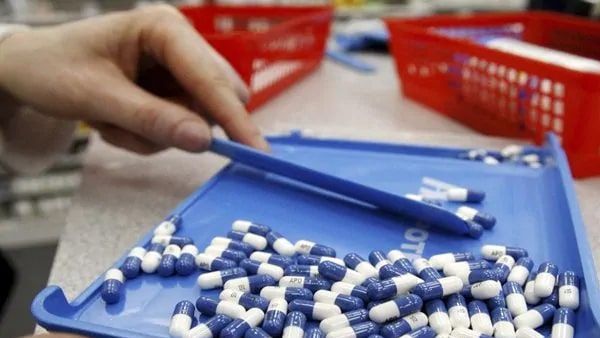|
 Investors continue to chase Indian pharma stocks, in the process pushing names like Dr Reddys, Cipla, Divi's Labs,
Biocon and Indoco Remedies to their highest levels over the last year.
Investors continue to chase Indian pharma stocks, in the process pushing names like Dr Reddys, Cipla, Divi's Labs,
Biocon and Indoco Remedies to their highest levels over the last year.
There are multiple reasons being attributed to the renewed interest in a sector that till a month back did not
figure on the radar of most fund managers, barring those who managed dedicated healthcare funds.
Some investors feel these stocks are available at a reasonable price, and that many, if not all, pharma firms could
benefit from the worldwide efforts to treat COVID-19 patients.
Edelweiss, in their note on the sector, believes a re-rating is possible because of a "structural tailwind from the
opportunity of coming to the world's rescue"(in the form of supplies of key generic drugs).
An example of this is recent USFDA approval for Cipla's generic version of the inhaler drug used for asthma, Proventil HFA.
Analysts have expected the approval to come through sometime towards the end of this financial year. However, the process
was expedited by the USFDA to meet the challenges of COVID-19. Nomura estimates Cipla can make around $80 million a year
from this drug initially. Cipla is Edelweiss's top pick because of what the broking firm calls the company's 'unique
respiratory advantage in a COVID-19 environment'.
Besides Cipla, Edelweiss believes others like Cadila and IPCA Labs too could benefit, but the upside is likely to have
been priced in already.
One of the reasons for the recent re-rating of pharma stocks according to analysts, is that supply shortage risks have reduced.
India along with the world is highly dependent on Chinese Active Pharmaceutical Ingredients (APIs). India procures 60 percent
and in some cases up to 80 percent of APIs and key raw materials from China.
Since the onset of the coronavirus epidemic, analysts have been wary of a disruption in API supplies from China which would
hurt the profits and profitability of Indian pharma companies.
With the lockdown being lifted in the Wuhan region and China gradually returning to normalcy, concerns over supply have eased.
DSP Investment Manager's Aditya Khemka, who handles DSP's Healthcare fund points out that there has been partial normalisation
of manufacturing activities in China with chances of shortages looking less likely.
The problem now is the lockdown in India and the logistical challenges in transporting the imports to the factories. But,
the supply disruption is expected to have some unintended consequences—of the positive kind—for India. Khemka points out
that one could see a trend of global firms turning to India as another source of API supplies, to reduce the risk of over
dependence on Chinese firms. This kind of opportunity however is more positive for established API companies, he says.
An example is Divi's Labs which in fact is expanding its capacity to cater to the growing opportunity in APIs. More so, the
Indian government recognizing the need for self-sufficiency in APIs, announced incentives for developing bulk drug parks in
mid-March. Edelweiss believes this eventual self-sufficiency will prevent future supply disruptions for Indian pharma companies.
Reasonable valuations
At the end of 2019, most pharma companies were available cheap. But that was not the case always. From FY09 to FY15,
the BSE Healthcare index outperformed the broader markets by a decent margin. The price to book value (PBV) during this
period rose from 2-3x to 6-7x. Strong growth in domestic sales as well as exports was the primary driver of this trend.
However, these valuations started deteriorating rapidly between FY16 to FY19 as both exports and domestic sales slowed.
While the sentiment for the sector has turned positive, analysts warn that investors should be mindful of risks like
adverse USFDA verdicts, currency fluctuations and fierce competition in the US generic market.
|

